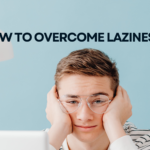What is love and relationship addiction? How to overcome it: Love and relationships are essential aspects of the human experience, offering deep emotional connections and support. However, for some people, these connections can become a source of addiction, leading to unhealthy behaviors and dependencies. In this article, we will talk about the concept of love and relationship addiction, delve into its roots, and provide techniques for overcoming this challenging condition.
Also Read:
What is Love and Relationship Addiction
Love and relationship addiction, usually referred to as “love addiction” or “relationship addiction,” is a psychological phenomenon where people form an unhealthy dependence on romantic relationships as a means to deal with emotional pain, insecurity, or a sense of emptiness. This habit can be displayed in different ways, including an extreme fear of abandonment, a compulsive requirement for regular reassurance, and an incapacity to maintain healthy boundaries.
Roots of Love and Relationship Addiction
Love and relationship addiction generally arise from deeper emotional hurts and unresolved issues from childhood or past relationships. People may seek validation, self-worth, or a sense of uniqueness through their romantic connections, leading to an unhealthy cycle of dependency.
Characteristics of Love and Relationship Addiction
- Fear of Abandonment: People with love and relationship addiction usually experience an overwhelming fear of being left, leading to sticky and possessive behaviors.
- Need for Approval: There is a constant craving for approval and validation from a partner, and people may go to great lengths to pursue reassurance.
- Obsessive Thinking: Thoughts about the relationship consume a substantial portion of their mental space, causing anxiety and a focus on the partner’s actions and feelings.
- Poor Boundaries: Difficulty in setting and maintaining healthy boundaries can result in a loss of personal identity within the relationship.
Effect on Well-being
Love and relationship addiction can take a toll on mental and emotional well-being. The ongoing emotional highs and lows, associated with a fear of rejection, can contribute to anxiety, depression, and a diminished sense of self.
How to Overcome Love and Relationship Addiction
Identifying and addressing love and relationship addiction is a brave step toward personal growth and well-being. Here are strategies to help overcome this challenging condition
Seek Professional Help
Professional therapy, such as counseling or psychotherapy, can supply a safe and supportive space to explore the root causes of love and relationship addiction. A trained therapist can guide people in forming healthier coping tools and breaking the cycle of dependency.
Self-Reflection and Awareness
Engage in self-reflection to recognize patterns of behavior and emotional triggers. Developing self-awareness is an important step toward breaking the cycle of love and relationship addiction. Journaling, meditation, or mindfulness practices can help in this process.
Set Healthy Boundaries
Setting and maintaining healthy boundaries is important in overcoming love and relationship addiction. Clearly communicate your requirements, expectations, and limits within the relationship, promoting a sense of autonomy and self-respect.
Create a Support System
Develop a strong support system of friends, family, or support groups. Share your experiences and challenges with people who can deliver empathy, understanding, and encouragement on your journey to overcoming love and relationship addiction.
Focus on Self-Love
Focus on self-love and self-care as important elements of well-being. So, focus on activities that bring joy, fulfillment, and a sense of achievement. Prioritize your own requirements and aspirations apart from the dynamics of the romantic relationship.
Build Personal Identity
Rediscover and nurture your personal identity outside of the relationship. Chase personal interests, hobbies, and goals that contribute to your sense of self-worth and fulfillment.
Practice Mindfulness
Embrace mindfulness practices to stay grounded in the present moment. Mindfulness can help people handle overwhelming emotions, break free from harmful thought patterns, and promote a healthier perspective on relationships.
Educate Yourself
Take the time to educate yourself about love and relationship addiction. Understanding the psychological tools at play can empower people to make knowledgeable choices and break free from harmful patterns.
Set Realistic Expectations
Rethink and recalibrate your expectations within the relationship. Understand that a healthy relationship includes mutual respect, communication, and space for personal growth. Avoid placing unrealistic expectations on your partner or the relationship to fulfill all your emotional requirements.
Engage in Positive Affirmations
Include positive affirmations into your everyday routine to strengthen feelings of self-worth and independence. Affirmations can help reshape negative thought patterns and encourage a more positive self-image.
At The End
Love and relationship addiction can be a difficult and deeply rooted pattern of behavior, but with commitment and self-reflection, it is likely to break free and develop healthier connections. Identifying the roots of this addiction, seeking professional help, and welcoming self-love are important steps in the journey toward overcoming love and relationship addiction.
It’s important to remember that this process is unusual for each person, and progress may be incremental. Celebrate small victories, stay committed to personal growth, and surround yourself with a supportive network. By addressing the underlying issues, creating healthier managing mechanisms, and promoting a strong sense of self, people can embark on a transformative journey toward breaking free from the chains of love and relationship addiction.








